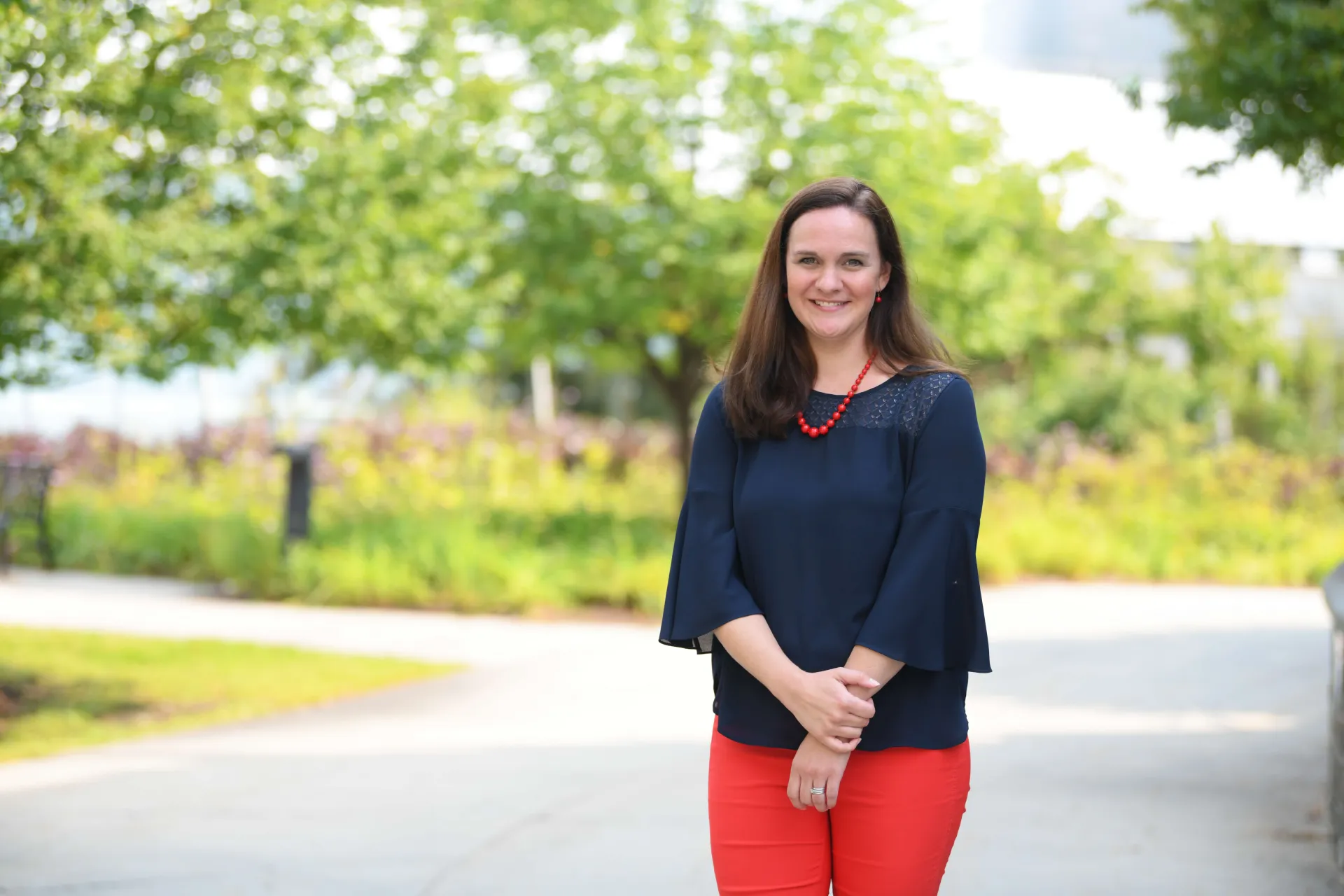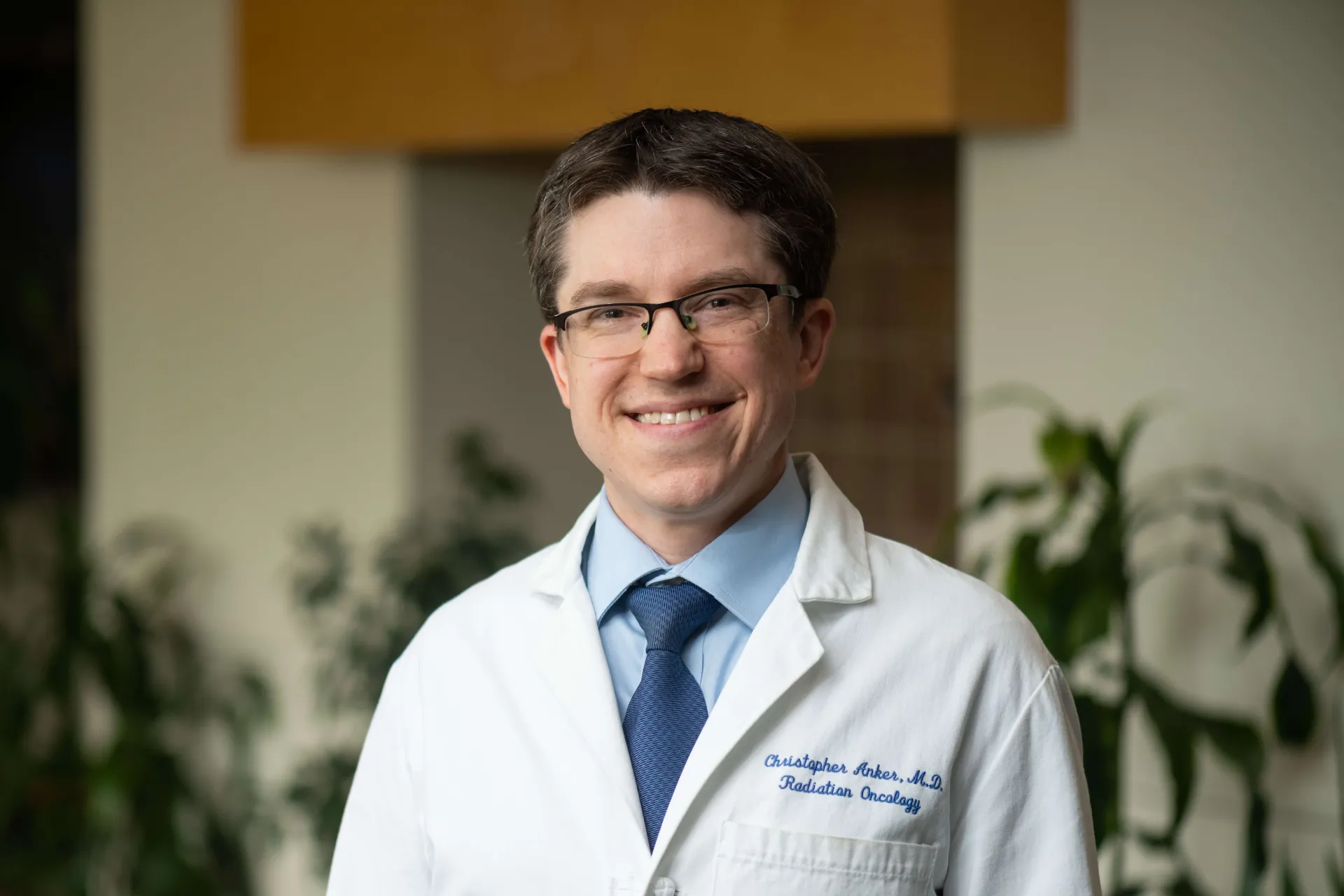Q&A with Neuro-oncologist and Master Trialist Alissa Thomas, M.D.
Neuro-oncologist Alissa Thomas, M.D. understands the importance of clinical trials for advancing cancer care and treatment. A UVM Cancer Center member and division chief for neuro-oncology, Dr. Thomas is a master trialist who runs nearly a dozen interventional clinical trials focused on brain cancer at UVM Cancer Center.
We talked with Dr. Thomas about her career path in neuro-oncology and the benefit of clinical trials for patients and providers alike.
Tell us about yourself. How did you find your way to oncology, specifically neuro-oncology?
Alissa Thomas: I fell in love with neuroscience in college and studied brain and behavior primarily. But I was much more interested in the impact of that work on humans and patient care. I went into residency in neurology, where I was repeatedly assigned to the oncology service as an intern in medicine. And I was so inspired by the patients I met there. I witnessed many deep meaningful conversations between patients and their care teams that involved a lot of trust building early on and a different kind of shared decision making. That stuck with me. And then I discovered that I was just fascinated by cancer biology.
Going into medical school, I was convinced I would never do oncology: My father was diagnosed with cancer when I was in college, and everything related to cancer felt too personal and close to home. But after a few years, I began to see things from a different perspective. And I think that personal experience contributed to me being more motivated and inspired to help this group of patients.
There are many kinds of clinical trials; you are mostly involved with interventional clinical trials. What distinguishes them from other kinds of clinical trials?
AT: An interventional clinical trial is intent on treating cancer and providing an intervention that directly impacts patient care. We often distinguish these from supportive care trials which are trying to improve somebody's overall experience with cancer, but not necessarily the disease itself. Broadly, interventional treatment trials are really aimed at the discovery of new and better therapeutics to improve outcomes and increase survival for patients with cancer.
What does being a clinical trials investigator look like for you on a day-to-day basis?
AT: Thinking about clinical trials is truly part of my thought process when I approach the patient. I'm often seeking that next better treatment that may improve upon what we already have. So, I do a lot of reading, and a lot of professional networking to find out what's effective, and I work with collaborators here and across the nation to bring promising trials here so that they're accessible to patients in Vermont and northern New York.
When I have a patient who's on a clinical trial, the day-to-day is exactly the same as for someone who's not: they get regular doctor's appointments, MRIs, scans, lab work. But there's another layer of oversight and reporting that happens in real-time with everyone else running this trial. Without naming the patient, we share if anyone is having problems with their labs, or side effects to this drug, and whether it seems to be working and shrinking tumors.
Do you research with specific patients in mind--or the other way around, by looking to see what's out there and then thinking what could work for potential patients in our catchment area? Or is it a bit of both?
AT: It's a bit of both. I try to select trials to open here at UVM that I think will serve our patient population in general. And I often aim to have trials that will hit all of the different tumor types or diseases that we see. But often I have a patient who needs a new treatment that we may or may not offer. And so sometimes I will specifically open a clinical trial for an individual patient if there's something that's a good fit.
What should patients know about participating in a clinical trial?
AT: There's an experimental nature of clinical trials where we don't know if this is better than the normal standard of care or not. That's why we're doing the research. But there's also a lot of protection for patients who are on clinical trials through medical ethics, institutional review boards, and rigorous scientific review and preclinical testing of these medications. The way clinical trials are designed in cancer care is, I can safely say, never less than standard of care. So even what we call “placebo-controlled trials,” are the normal drug plus the placebo drug, versus the normal drug plus a new drug; or the normal drug versus a new drug. The intent is to try to build upon the treatments we already have and make those better, or improve upon what outcomes can be by using newer therapies.
What brought you to UVM Medical Center, and the Cancer Center?
AT: I grew up in a rural area of Western Maine and I was motivated to be in a place where I could serve a more rural patient population and reconnect with my roots. But I also wanted to be able to practice neuro-oncology the way I was trained to practice at Memorial Sloan Kettering, where I had access to cutting-edge clinical trials and support teams. After all, the treatments we have today for the diseases that I treat just aren't good enough, so being at an academic center that’s committed to bringing new ideas and new research forward is critical. I found that combination at UVM. It's hard to find an academic rural hospital but here we are. It’s an essential resource for patients and also my home. My family and I ski and go to local fairs and music events, and we just really enjoy nature here. I think working in cancer makes you realize just how fragile life can be and how quickly things can change, and you just have to appreciate all the moments in between.

